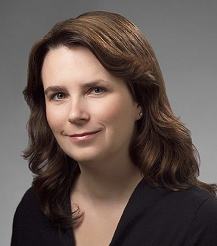 The enormity and severity of the West African Ebola epidemic that began in 2014 is hard to fathom. Over 10,000 people died with hundreds of thousands deeply affected by loss. In treating any medical condition, information is needed to provide adequate care, but when it’s an epidemic so severe, so dangerous and so fast-moving, it’s required more than ever. Ebola creates enormous barriers for patient care. It’s communicability means those who directly treat patients within the “Red Zone” must take extreme precautions. The lack of knowledge about who is infected and what constitutes effective treatment — not to mention the swift and severe toll it takes on the human body — makes caring for those affected extremely difficult...
The enormity and severity of the West African Ebola epidemic that began in 2014 is hard to fathom. Over 10,000 people died with hundreds of thousands deeply affected by loss. In treating any medical condition, information is needed to provide adequate care, but when it’s an epidemic so severe, so dangerous and so fast-moving, it’s required more than ever. Ebola creates enormous barriers for patient care. It’s communicability means those who directly treat patients within the “Red Zone” must take extreme precautions. The lack of knowledge about who is infected and what constitutes effective treatment — not to mention the swift and severe toll it takes on the human body — makes caring for those affected extremely difficult...
Electronic Medical Record (EMR) system
See the following -
Deconstructing Veterans Health Care
...An estimated 80% of the 9 million veterans receiving health care at the VA are satisfied. To cull from this population a minority of dissatisfied people who report negative things about the VA is not responsible investigative reporting; it is just tabloid journalism...
- Login to post comments
Fighting Ebola with Open Source Collaboration
- Login to post comments
How A Free Mobile App Fights Ebola And Other Global Epidemics
 The enormity and severity of the West African Ebola epidemic that began in 2014 is hard to fathom. The outbreak resulted in more than 11,000 deaths, and hundreds of thousands of people affected by loss. Providing adequate care for any medical condition depends on information, but even more so when dealing with an epidemic that is as severe, dangerous, and fast-moving as Ebola. This is the story of how a dispersed global health IT community banded together to solve the enormous, unique information challenges presented by Ebola...
The enormity and severity of the West African Ebola epidemic that began in 2014 is hard to fathom. The outbreak resulted in more than 11,000 deaths, and hundreds of thousands of people affected by loss. Providing adequate care for any medical condition depends on information, but even more so when dealing with an epidemic that is as severe, dangerous, and fast-moving as Ebola. This is the story of how a dispersed global health IT community banded together to solve the enormous, unique information challenges presented by Ebola...
- Login to post comments
The Open Patient: Advocating for Open Access to Medical Data
 Steven Keating had always been interested in data and learning about things, which is why he volunteered to do a research scan when he was a student. The scan revealed an abnormality. In 2014, the abnormality had grown into a massive tumor. Soon he learned that there were many barriers keeping him from accessing his own data. "And that's what I've been sharing, which is this question: How come as a patient we're last in line for our own data? How come my doctors and my university researchers can see my tumor genome and I can't?"
Steven Keating had always been interested in data and learning about things, which is why he volunteered to do a research scan when he was a student. The scan revealed an abnormality. In 2014, the abnormality had grown into a massive tumor. Soon he learned that there were many barriers keeping him from accessing his own data. "And that's what I've been sharing, which is this question: How come as a patient we're last in line for our own data? How come my doctors and my university researchers can see my tumor genome and I can't?"
- Login to post comments